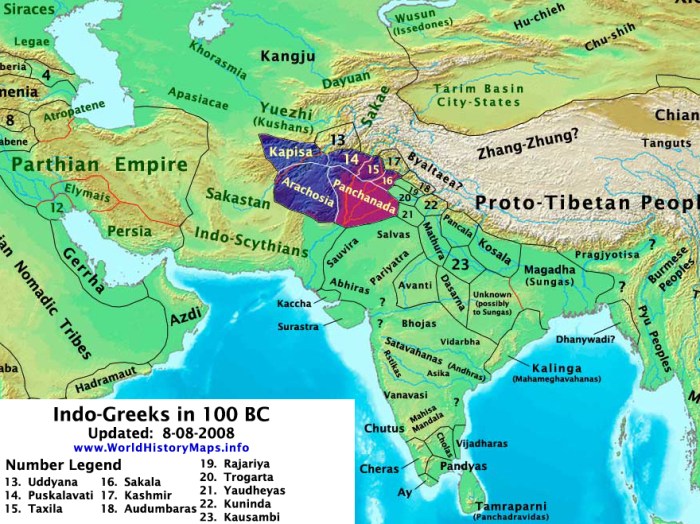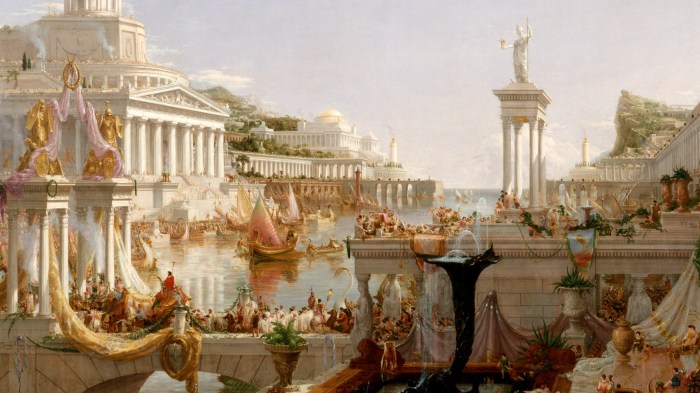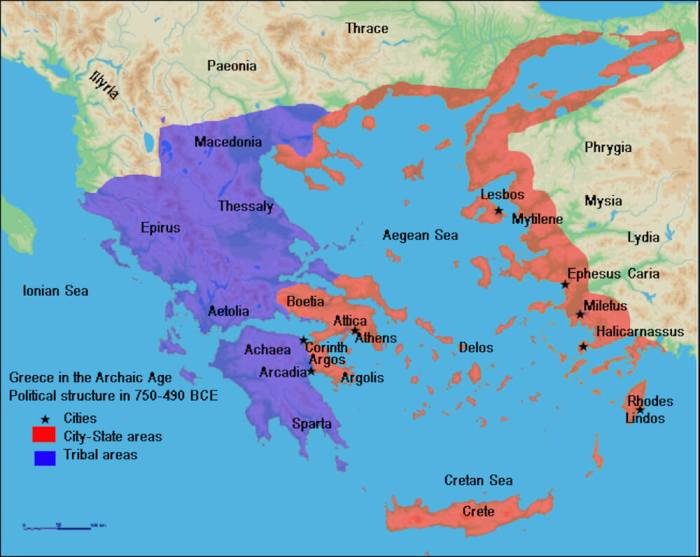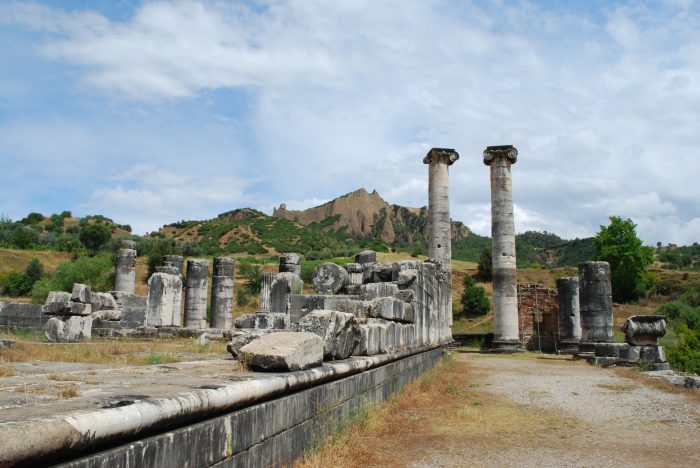Ancient Greek kingdom crossword clue: Embark on a journey through the enigmatic realm of ancient Greece, where powerful kingdoms flourished, leaving an indelible mark on Western civilization. From their historical significance to their architectural marvels, this crossword clue unravels a captivating tapestry of history, culture, and intrigue.
In the annals of history, ancient Greek kingdoms played a pivotal role, shaping the political, social, and cultural landscape of the Mediterranean world. Their geographical distribution spanned a vast expanse, from the Peloponnese to the shores of Asia Minor, each kingdom boasting unique characteristics that contributed to the rich diversity of ancient Greece.
Historical Significance
The ancient Greek kingdoms played a pivotal role in shaping the course of Western civilization. These kingdoms emerged during the Bronze Age and flourished during the Classical and Hellenistic periods, leaving an enduring legacy in the fields of politics, philosophy, science, and the arts.
The major players in the development of ancient Greek kingdoms included the Mycenaeans, Spartans, Athenians, and Macedonians. The Mycenaeans established the first major civilization in Greece around 1600 BC, with their centers at Mycenae and Tiryns. The Spartans emerged as a powerful military state in the Peloponnese, known for their strict discipline and warrior ethos.
The Athenians, based in Attica, developed a democratic system of government and became a center of intellectual and cultural achievement. The Macedonians, under the leadership of Alexander the Great, conquered much of the known world, spreading Greek culture and influence throughout the Mediterranean and beyond.
Impact on Western Civilization
The ancient Greek kingdoms had a profound impact on Western civilization. Their political systems, philosophical ideas, scientific discoveries, and artistic creations continue to influence the world today. The Greek concept of democracy, with its emphasis on citizen participation and the rule of law, has served as a model for many modern democracies.
Greek philosophers, such as Socrates, Plato, and Aristotle, developed foundational ideas in ethics, metaphysics, and political theory that have shaped Western thought for centuries.
In science, the Greeks made significant contributions to mathematics, astronomy, and medicine. The Pythagorean theorem, the heliocentric model of the solar system, and the Hippocratic Oath are just a few examples of their enduring scientific legacy. In the arts, Greek sculpture, architecture, and literature have been admired and imitated for their beauty, harmony, and enduring relevance.
Geographical Distribution

The ancient Greek kingdoms were spread across a wide geographical area, from the Peloponnese in the south to Macedonia in the north, and from Ionia in the west to Cyprus in the east.
The following table provides a summary of the key characteristics of some of the most important ancient Greek kingdoms:
Kingdoms and Their Characteristics
| Kingdom | Location | Key Characteristics |
|---|---|---|
| Argos | Peloponnese | One of the oldest and most powerful kingdoms in Greece, known for its wealth and military prowess. |
| Athens | Attica | A major cultural and political center, known for its democracy and its contributions to philosophy, art, and literature. |
| Corinth | Isthmus of Corinth | A wealthy and important commercial center, known for its strategic location and its production of pottery and textiles. |
| Macedonia | Northern Greece | A powerful kingdom that eventually conquered the rest of Greece under Alexander the Great. |
| Sparta | Laconia | A militaristic kingdom known for its strict discipline and its emphasis on physical fitness. |
| Thebes | Boeotia | A major religious center, known for its oracle at Delphi. |
The map below illustrates the geographical distribution of the ancient Greek kingdoms:
[Image of a map of ancient Greece showing the location of the major kingdoms]
Political Structures: Ancient Greek Kingdom Crossword Clue
The political structures of ancient Greek kingdoms varied widely, with different types of monarchies and republics emerging over time. These structures were influenced by factors such as the size and location of the kingdom, the social and economic conditions of the population, and the cultural and religious beliefs of the people.
Monarchy
Monarchy was the most common form of government in ancient Greece. In a monarchy, power was concentrated in the hands of a single ruler, known as a king or queen. The king typically inherited his or her position and ruled for life.
The power of the king varied depending on the kingdom, but in general, he or she had the authority to make laws, declare war, and appoint officials.
Republic
In a republic, power was shared among a group of citizens. The citizens elected representatives to serve in a council or assembly, which made laws and oversaw the government. The most famous example of a Greek republic was Athens, which developed a democratic system of government in the 5th century BC.
In Athens, all male citizens over the age of 18 were eligible to participate in the assembly and vote on laws.
Comparison of Monarchies and Republics
Monarchy and republics were two very different forms of government, with each having its own advantages and disadvantages. Monarchies were often more stable than republics, as the power of the king was not subject to the whims of the people.
However, monarchies could also be more oppressive, as the king was not accountable to the people. Republics, on the other hand, were more responsive to the needs of the people, but they could also be more unstable, as the government was subject to the whims of the majority.
Cultural Contributions

The ancient Greek kingdoms were renowned for their exceptional cultural achievements, which have left an enduring legacy on Western civilization. These contributions encompass art, literature, philosophy, and science, shaping the intellectual and artistic landscape of the world.
Art
Greek art, particularly sculpture and architecture, exemplified the pursuit of beauty, balance, and harmony. Greek sculptures, such as the Venus de Milo and the Discus Thrower, captured the human form with unmatched grace and realism. Their temples and public buildings, like the Parthenon and the Temple of Zeus at Olympia, showcased architectural marvels characterized by elegant columns, intricate carvings, and harmonious proportions.
Literature
Greek literature laid the foundation for Western literary traditions. Epic poems like Homer’s Iliad and Odyssey captivated audiences with their tales of heroism, adventure, and the human condition. Greek drama, particularly the tragedies of Sophocles, Aeschylus, and Euripides, explored profound themes of fate, justice, and the complexities of human nature.
Philosophy
Greek philosophers, including Socrates, Plato, and Aristotle, revolutionized the study of human existence, knowledge, and ethics. They developed foundational concepts in logic, metaphysics, and political theory that continue to influence philosophical discourse today. Their ideas on the pursuit of wisdom, the nature of reality, and the principles of good governance have shaped Western thought and culture.
Science
Greek scientists made significant contributions to astronomy, mathematics, and medicine. Aristarchus of Samos proposed a heliocentric model of the solar system, while Pythagoras developed the Pythagorean theorem. Hippocrates, the “Father of Medicine,” established principles of medical ethics and laid the groundwork for modern medical practices.
The cultural contributions of the ancient Greek kingdoms have had a profound and lasting impact on Western civilization. Their art, literature, philosophy, and science continue to inspire, educate, and shape the intellectual and cultural landscape of the world.
Architectural Marvels
The ancient Greek kingdoms were renowned for their architectural achievements, which showcased their exceptional engineering skills and artistic sensibilities. These structures played a pivotal role in shaping the development of Greek architecture and continue to inspire awe and admiration today.
The Greeks constructed magnificent temples dedicated to their gods and goddesses. These temples, often adorned with intricate sculptures and carvings, served as centers of religious worship and community gatherings. The Parthenon, built on the Acropolis in Athens, stands as a testament to the architectural prowess of the ancient Greeks.
Its harmonious proportions, Doric columns, and exquisite frieze have made it one of the most iconic buildings in the world.
Theaters
The Greeks also excelled in the construction of theaters. These open-air venues were designed to accommodate large audiences and provided an immersive experience for spectators. The theaters featured sophisticated acoustics and elaborate stage designs, allowing for dramatic performances that captivated the imagination.
The Theater of Epidaurus, located in the Peloponnese, is renowned for its exceptional acoustics. Its carefully designed seating arrangement and sloping stage ensure that even whispers can be heard clearly throughout the auditorium. The theater’s stunning setting, surrounded by lush greenery and rolling hills, adds to its allure.
Palaces
In addition to temples and theaters, the ancient Greeks constructed opulent palaces for their rulers and elite citizens. These palaces showcased the wealth and power of the ruling class and were often decorated with elaborate frescoes, mosaics, and sculptures.
The Palace of Knossos, located on the island of Crete, is an outstanding example of Minoan architecture. Its intricate layout, featuring multiple courtyards, grand staircases, and vibrant frescoes, provides a glimpse into the sophisticated civilization that flourished on Crete.
Religious Beliefs and Practices

The ancient Greek kingdoms shared a rich and complex religious tradition that permeated all aspects of their lives. They believed in a pantheon of gods and goddesses, each with their own powers and responsibilities, who oversaw the natural world and human affairs.
Major Gods and Goddesses
The most important gods in the Greek pantheon were Zeus, the king of the gods; Hera, his wife and queen of the gods; Poseidon, god of the sea; Hades, god of the underworld; and Athena, goddess of wisdom and war.
Other important gods and goddesses included Hermes, messenger of the gods; Apollo, god of music and prophecy; Artemis, goddess of the hunt and wilderness; Aphrodite, goddess of love and beauty; and Ares, god of war.
Rituals and Ceremonies
The Greeks practiced a variety of rituals and ceremonies to honor their gods and goddesses. These included sacrifices, prayers, and festivals.
Sacrifices were the most common way to honor the gods. The Greeks believed that by sacrificing animals or other offerings, they could gain the favor of the gods or appease their anger.
Prayers were another important way to communicate with the gods. The Greeks prayed for everything from good health to victory in battle.
Festivals were held throughout the year to celebrate the gods and goddesses. These festivals included music, dancing, and feasting.
Economic Activities
The ancient Greek kingdoms were characterized by diverse economic activities, with agriculture, commerce, and industry playing significant roles in their economies.
Agriculture was the backbone of the Greek economy, with most citizens engaged in farming or herding. The fertile soil and Mediterranean climate allowed for the cultivation of various crops, including wheat, barley, grapes, and olives. Livestock, such as sheep, goats, and cattle, were also raised for food and wool production.
Commerce
The Greeks were renowned for their maritime trade networks, which extended across the Mediterranean Sea and beyond. They established trading colonies and outposts throughout the region, facilitating the exchange of goods and ideas. The main exports of ancient Greece included olive oil, wine, pottery, and textiles, while they imported luxury items such as spices, ivory, and precious metals.
Industry
The Greeks were also skilled craftsmen, and various industries flourished in their kingdoms. Metalworking, pottery, and shipbuilding were particularly important, with Greek artisans producing high-quality goods that were exported throughout the Mediterranean world. Additionally, the Greeks developed advanced techniques in mining, quarrying, and construction, as evidenced by their impressive architectural achievements.
Military Prowess

Ancient Greek kingdoms were renowned for their formidable military prowess, which played a crucial role in their expansion and dominance. Their armies were highly disciplined and well-trained, employing innovative strategies and tactics that gave them an edge over their adversaries.
Military Strategies and Tactics, Ancient greek kingdom crossword clue
Greek military strategies often involved using hoplites, heavily armed infantrymen who formed a tight phalanx formation. This formation provided a solid defense against cavalry charges and allowed for coordinated attacks. Greek generals also employed cunning tactics, such as the “double envelopment,” where they would surround an enemy army from both sides.
Weapons
Greek warriors were equipped with a variety of weapons, including spears, swords, shields, and bows and arrows. The hoplite’s primary weapon was the doru, a long thrusting spear, while auxiliary troops used shorter spears and javelins. Greek swords, known as xiphos and kopis, were effective for close combat.
They also employed siege weapons, such as catapults and battering rams, to breach enemy fortifications.
Decline and Fall

The decline and fall of ancient Greek kingdoms was a complex and multifaceted process that spanned several centuries. A combination of political, social, and economic challenges ultimately led to the downfall of these once-mighty civilizations.
Political Challenges
- Internal strife and factionalism weakened the stability of Greek kingdoms, making them vulnerable to external threats.
- The rise of powerful city-states, such as Athens and Sparta, led to a decline in the authority of central governments.
- The Peloponnesian War (431-404 BCE) between Athens and Sparta devastated Greece and weakened its military power.
Social Challenges
- A decline in population growth and a shortage of labor led to economic problems and social unrest.
- The spread of disease and famine weakened the health and well-being of the Greek population.
- The rise of individualism and the decline of traditional values contributed to a breakdown in social cohesion.
Economic Challenges
- The exhaustion of natural resources, such as timber and silver, led to a decline in economic activity.
- The rise of foreign competition, particularly from the Persian Empire, made it difficult for Greek kingdoms to maintain their economic dominance.
- The Peloponnesian War disrupted trade and commerce, further damaging the Greek economy.
Detailed FAQs
What were the major ancient Greek kingdoms?
Some of the most prominent ancient Greek kingdoms included Athens, Sparta, Thebes, Corinth, and Macedonia.
What were the key characteristics of ancient Greek political structures?
Ancient Greek kingdoms exhibited a diverse range of political systems, including monarchies, oligarchies, and democracies, with varying degrees of citizen participation.
What were the major cultural contributions of ancient Greek kingdoms?
Ancient Greek kingdoms made significant contributions to art, literature, philosophy, and science, laying the foundations for Western civilization.